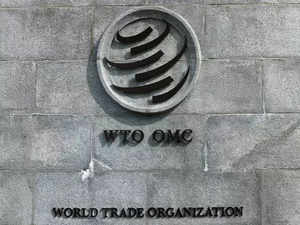Synopsis
India and South Africa’s objection to China’s investment facilitation initiative at the WTO affects developing countries including the Least Developed Countries, highlighting the vulnerabilities, the need for flexibilities in existing rules, and support for infant and young industries through conducive policies, incentives, and subsidies.
 ANI
ANIIndia and South Africa on Wednesday blocked a China-led initiative on investment facilitation at the WTO, in a move that will make it unlikely for the proposed Investment Facilitation Development to be part of the WTO agenda and outcome.
Officials said the two nations protested and filed a formal objection as China brought in the issue at a session on development. Around 52 countries made statements at the session and the proponents have sought separate deliberative sessions on the issue.
India and South Africa’s objection was on three grounds – exclusive consensus is needed to bring in any issue on the agenda, it’s debatable if the proposed pact is a trade agreement and it can’t be called an agreement since the signatories haven’t ratified.
The group of 123 members wants to bring the proposal through Annex-4 of the WTO under which the proposal would be binding on only the signatory members and not on those who are opposed to it.
While all decisions at the WTO happen through consensus, it also allows member countries to form a group and have agreements among themselves.
Such pacts come under Annexure 4 of the WTO that deals with plurilateral agreements.
“The delegations presenting this statement state that no exclusive consensus exists to add the proposed Agreement as an Annex 4 Agreement. We underscore that given the lack of exclusive consensus, this is not a matter for the MC13 agenda,” India and South Africa said.
The developing countries in their submission said that as there is no exclusive consensus on the agreement so it cannot be included in the MC13. “This means that the proposed investment facilitation agreement, backed by above 120 WTO members, cannot be part of the MC13 agenda, not discussed formally, and cannot be voted on or adopted in this minsiterial conference,” said an expert on trade issues. In the working group discussions on development, India pointed out that there have been many promises, but very little action, on account of which the vulnerabilities of the developing countries including the Least Developed Countries have only amplified further.
India said that the Developing countries urgently needed flexibilities in existing rules. Infant and young industries in developing countries needed support through conducive policies, incentives, subsidies and level playing field.
(The correspondent is in Abu Dhabi at the invitation of Ministry of Commerce and Industry)
Read More News on
ETSHorts
Discover more from CaveNews Times
Subscribe to get the latest posts sent to your email.


























![Exploring the Serene Beauty of Nature: A Reflection on [YouTube video title]](https://cavemangardens.art/storage/2024/04/114803-exploring-the-serene-beauty-of-nature-a-reflection-on-youtube-video-title-360x180.jpg)


























